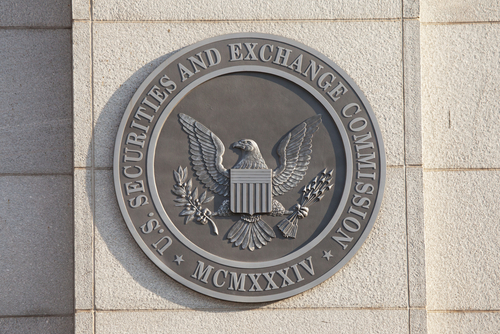The Securities and Exchange Commission (SEC) proposed a new rule this week that would require public companies to include certain climate-related disclosures in their registration statements.

Specifically, public companies would be required to disclose information about the governance of climate-related risks and relevant risk management processes; how any climate-related risks have had or are likely to have a material impact on its business and consolidated financial statements; how any identified climate-related risks have affected or are likely to affect the registrant’s strategy, business model, and outlook; and the impact of climate-related weather events on financial statements. It would also require the disclosure of a registrant’s greenhouse gas emissions.
“Today, investors representing literally tens of trillions of dollars support climate-related disclosures because they recognize that climate risks can pose significant financial risks to companies, and investors need reliable information about climate risks to make informed investment decisions. Today’s proposal would help issuers more efficiently and effectively disclose these risks and meet investor demand, as many issuers already seek to do. Companies and investors alike would benefit from the clear rules of the road proposed in this release,” SEC Chair Gary Gensler said.
Public companies that already conduct scenario analysis, have developed transition plans, or publicly set climate-related targets or goals, would be required to have disclosures that enable investors to understand those aspects of climate risk management.
The proposed rules would include a phase-in period for all registrants, with the compliance date dependent on the registrant’s filer status. The comment period will remain open for 30 days after publication in the Federal Register or 60 days after the date of issuance and publication on sec.gov, whichever period is longer.
The proposed rule was met with mixed reactions. U.S. Sen. Sherrod Brown (D-OH), chair of the Senate Committee on Banking, Housing, and Urban Affairs, supports the new disclosure requirements.
“To protect Americans and our economy from climate change, we have to understand how climate risk affects our businesses, workers, and communities,” Brown said. “The SEC’s proposal is a step forward and would establish for the first time consistent data frameworks, balancing the need to accurately evaluate market risks while ensuring small businesses aren’t overburdened.”
The U.S. Chamber of Commerce had concerns about certain aspects of the rule.
“The Chamber is concerned that the prescriptive approach taken by the SEC will limit companies’ ability to provide information that shareholders and stakeholders find meaningful while at the same time requiring that companies provide information in securities filings that are not material to investors. The Supreme Court has been clear that any required disclosures under securities laws must meet the test of materiality, and we will advocate against provisions of this proposal that deviate from that standard or are unnecessarily broad,” Tom Quaadman, executive vice president for the U.S. Chamber’s Center for Capital Markets Competitiveness, said.
Quaadman said the Chamber is committed to working constructively with the SEC to develop clear and workable rules for climate disclosures that provide meaningful information to investors.